Scooter data notebook: Bloomington ride numbers show downturn, one vendor leaves
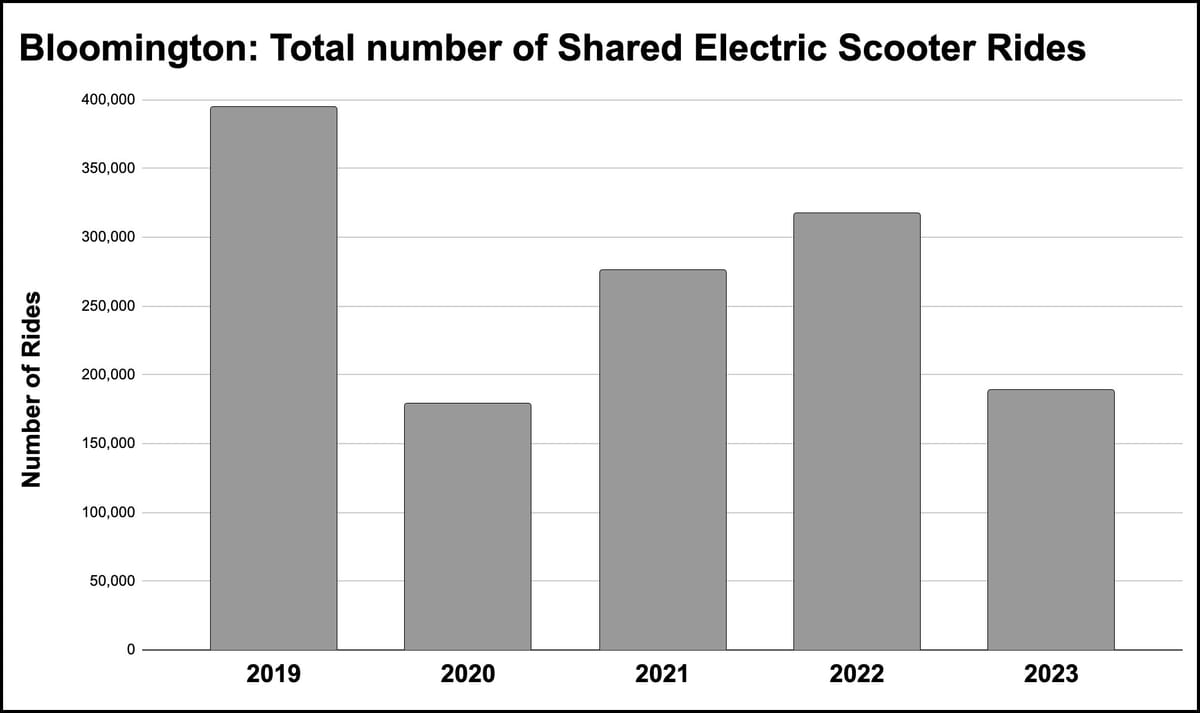
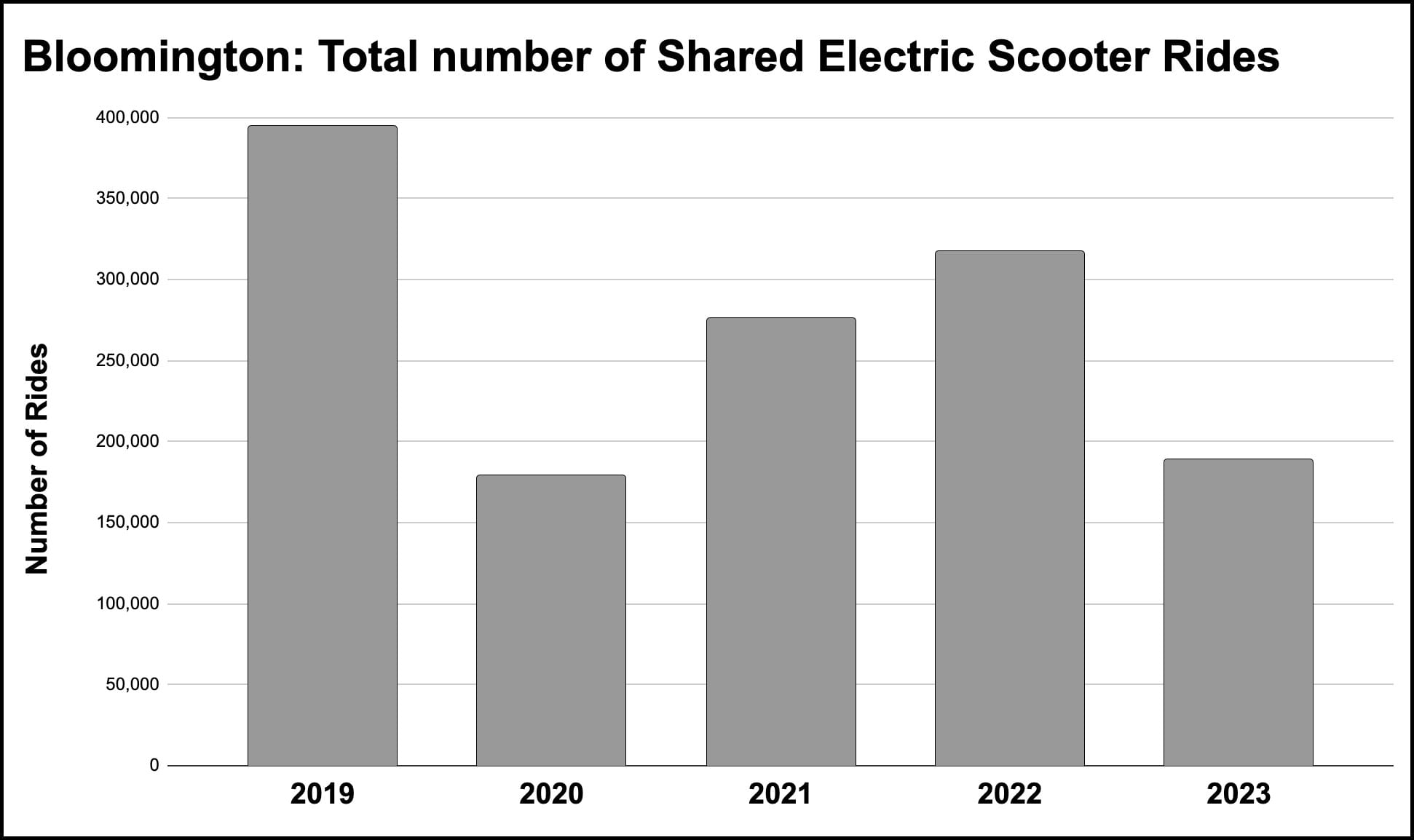
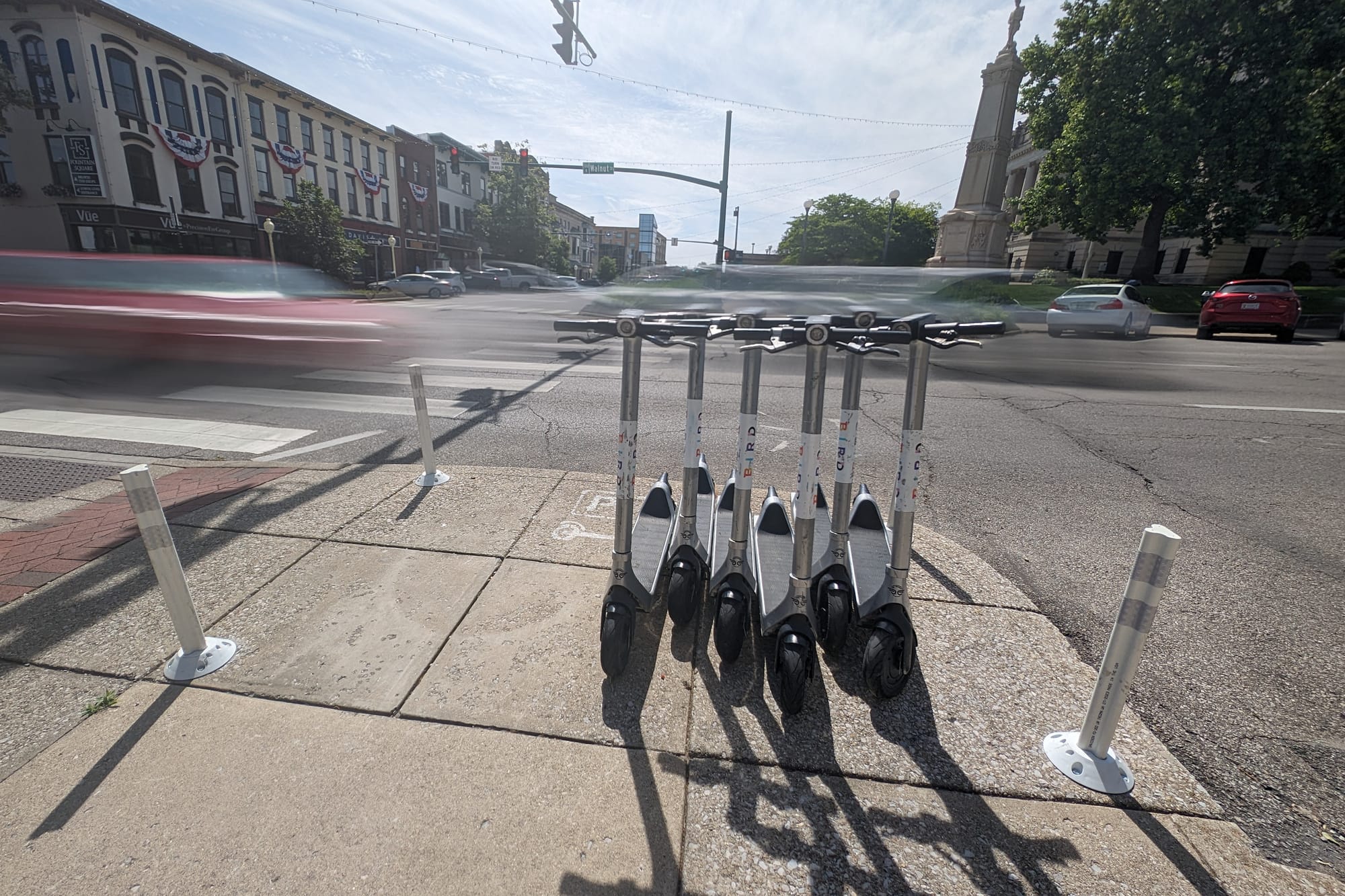
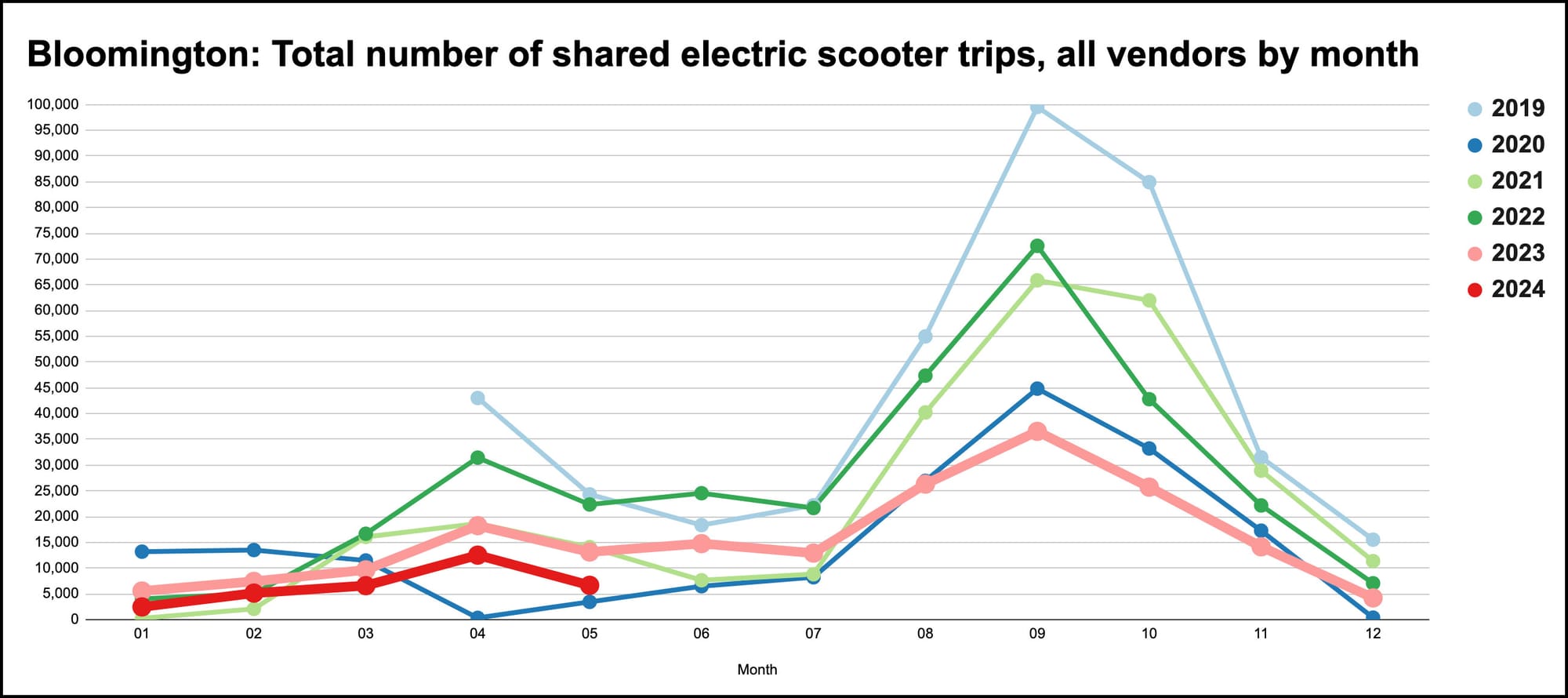
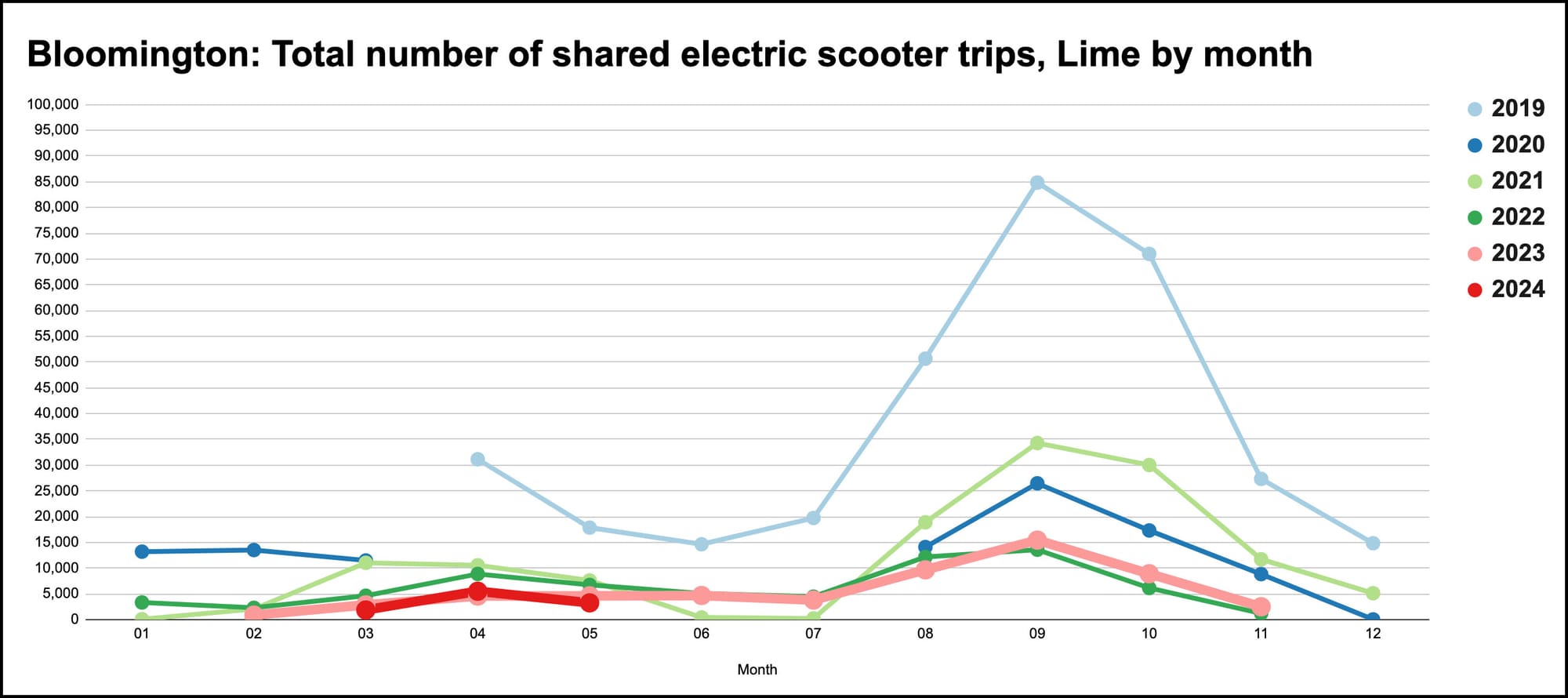
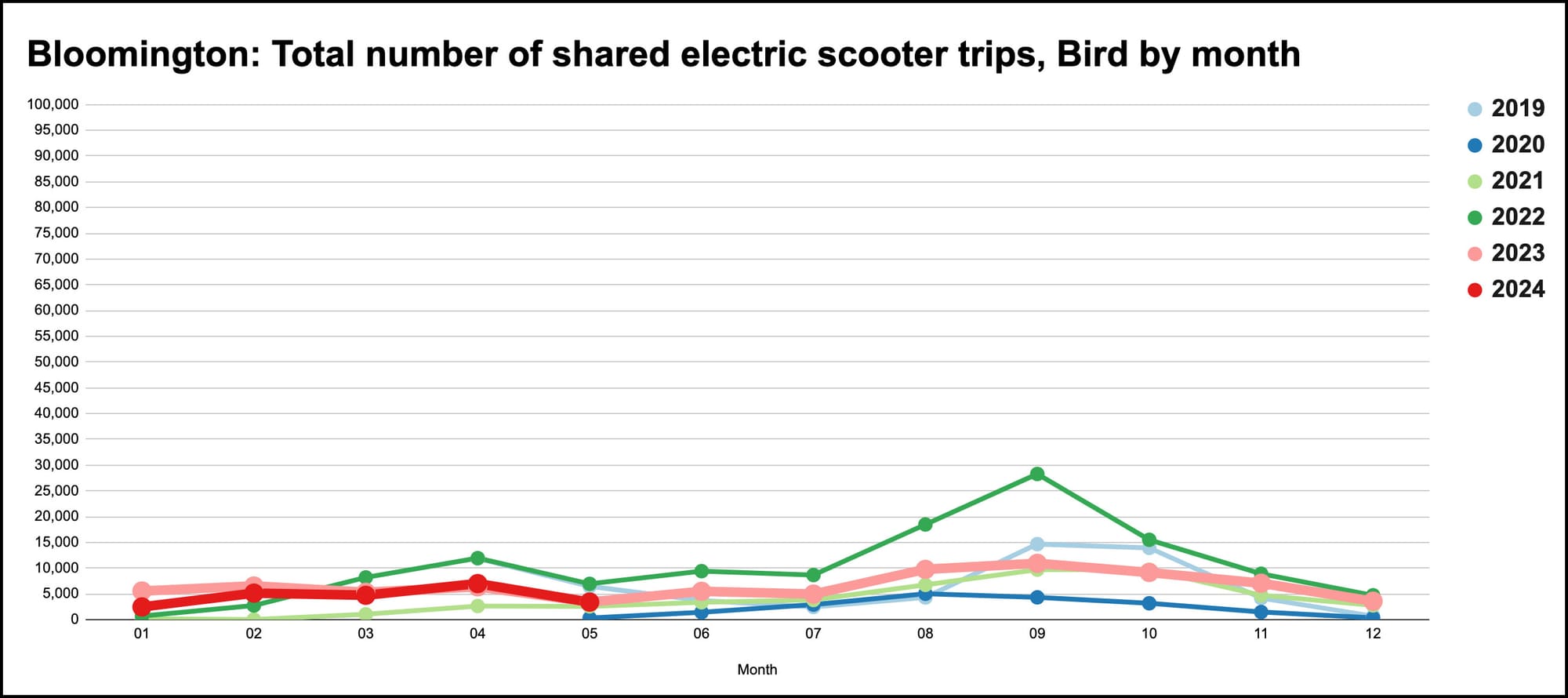
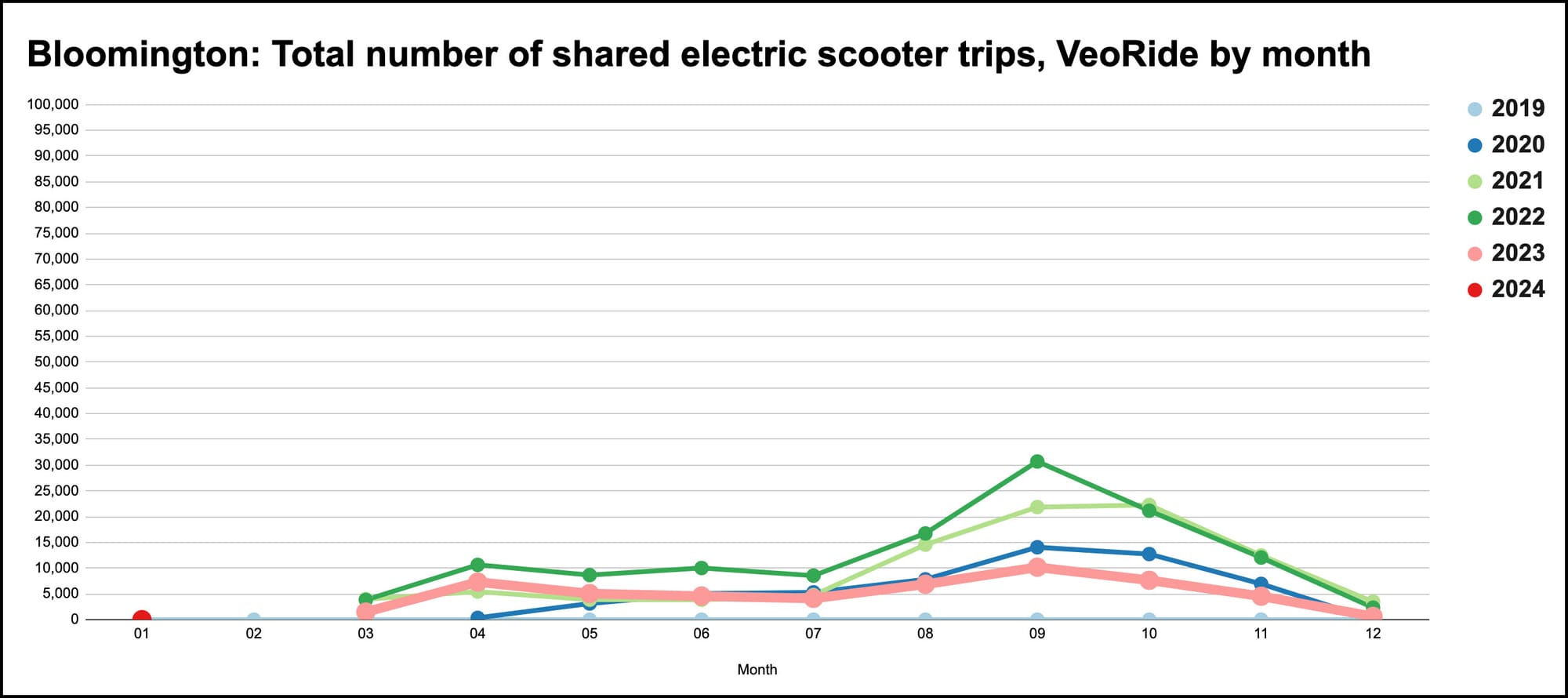
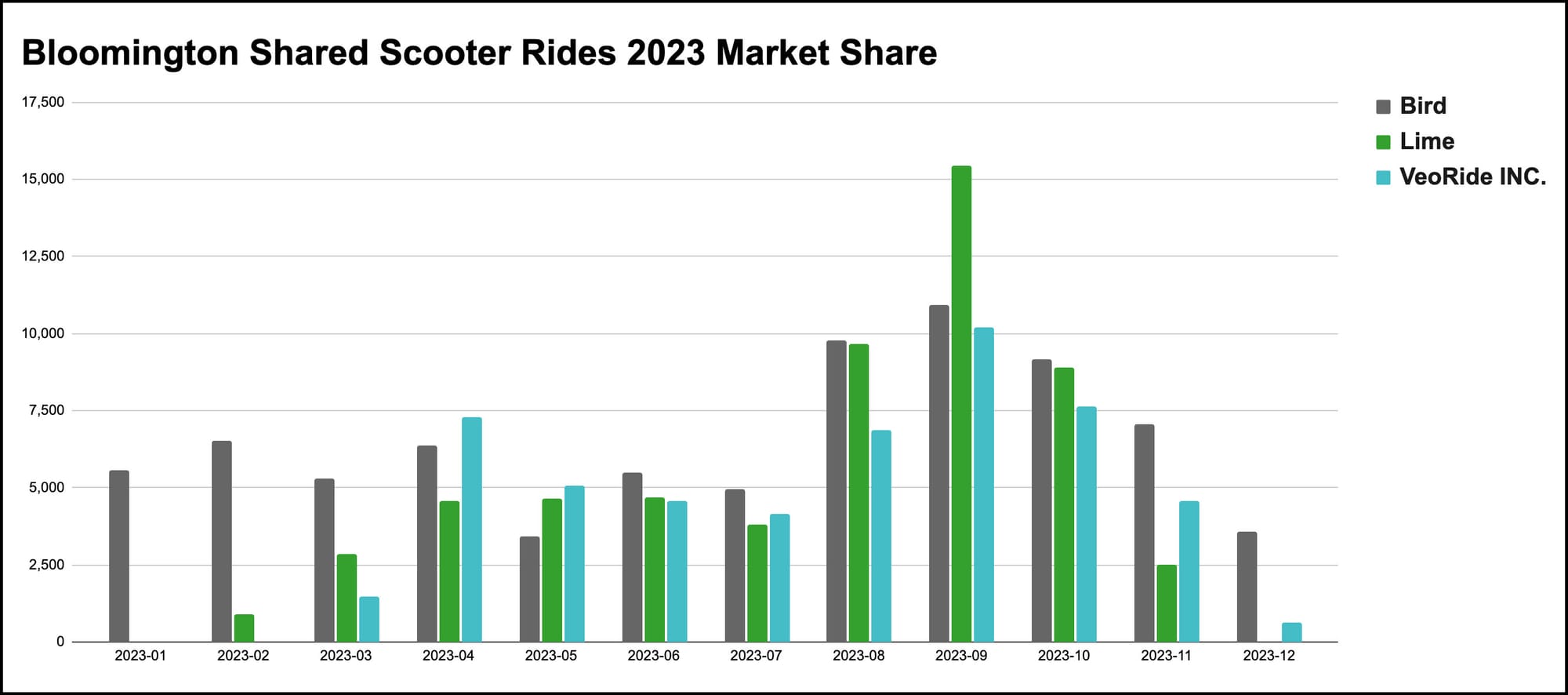
At a work session on budget priorities held this past Wednesday, Bloomington city councilmembers discussed sources of revenue for various initiatives.
One of the sources of revenue, which was mentioned by council president Isabel Piedmont-Smith, comes from fees paid to the city by shared electric scooter companies.
Each company pays $10,000 a year for a license to operate in the city. In addition to that, the companies pay the city $0.10 per ride.
Unless the city starts charging more for a license or more per ride, that revenue looks like it could see a downward slide.
The daily ride data collected by the city of Bloomington from scooter companies shows that after the COVID-19 pandemic diminished numbers in 2020, there was a recovery in 2021 and 2022. But the 2022 total still fell short of 2019 partial year numbers.
Then, from 2022 to 2023, scooter rides showed a downward turn.
In 2023, the total number of rides for all three vendors dropped by 40 percent compared to 2022 totals, from 317,736 to 188,653 rides. That translates into a revenue drop from $31,774 to $18,865.
For just the final nine months of 2019, which was the first year data was collected, more than 394,353 rides were taken. The 188,653 rides for 2023 are less than half the 2019 total.
Through the first 5 months of 2024, the number of rides is down 40 percent, from 54,026 to 33,410, compared to the first 5 months of 2023.
The other significant pattern revealed by the city’s dataset is that VeoRide recorded no rides during the first 5 months of 2024. That’s because VeoRide is no longer serving the Bloomington market. That leaves Lime and Bird as Bloomington’s remaining shared scooter vendors.
On Friday, Paige Miller, who is VeoRide’s manager for policy and communications, responded to a B Square question with an email message:
It was Veo’s pleasure to serve Bloomington. However, market conditions led us to make the decision not to seek a permit renewal in Bloomington. Our exit from Bloomington was in line with our contractual obligations and was done in cooperation with the City and community partners.
We commend the City for its commitment to advancing sustainable and accessible transportation and look forward to serving the community in the future should circumstances allow. We will continue to provide sustainable, accessible, and safe transportation options in nearby markets including Champaign-Urbana, Purdue University/West Lafayette, and the City of Carbondale/Southern Illinois University.
Hank Duncan, Bloomington’s bicycle and pedestrian coordinator responded to an emailed B Square question by writing: “We are still in contact with [VeoRide] regarding a potential future in Bloomington.”
Even if the number of rides stays constant, losing one of the three vendors will reduce the annual revenue from licensing fees by $10,000—from $30,000 to $20,000.
The B Square confirmed with Cliff Ingham—Bloomington’s applications infrastructure analyst who wrangles the scooter data feed—that the ride numbers in the city’s dataset include the electric bicycles that Lime and Bird also offer as options.
Under previous mayor John Hamilton’s administration, revenues from scooter companies were used to pay for corrals installed by the city to help enforce prohibitions against scooter users parking the vehicles at the end of their trip in a way that blocks sidewalks and ADA ramps.
The B Square has not followed up with new mayor Kerry Thomson about how her administration will approach those kinds of expenditures in connection with scooter companies.




Comments ()